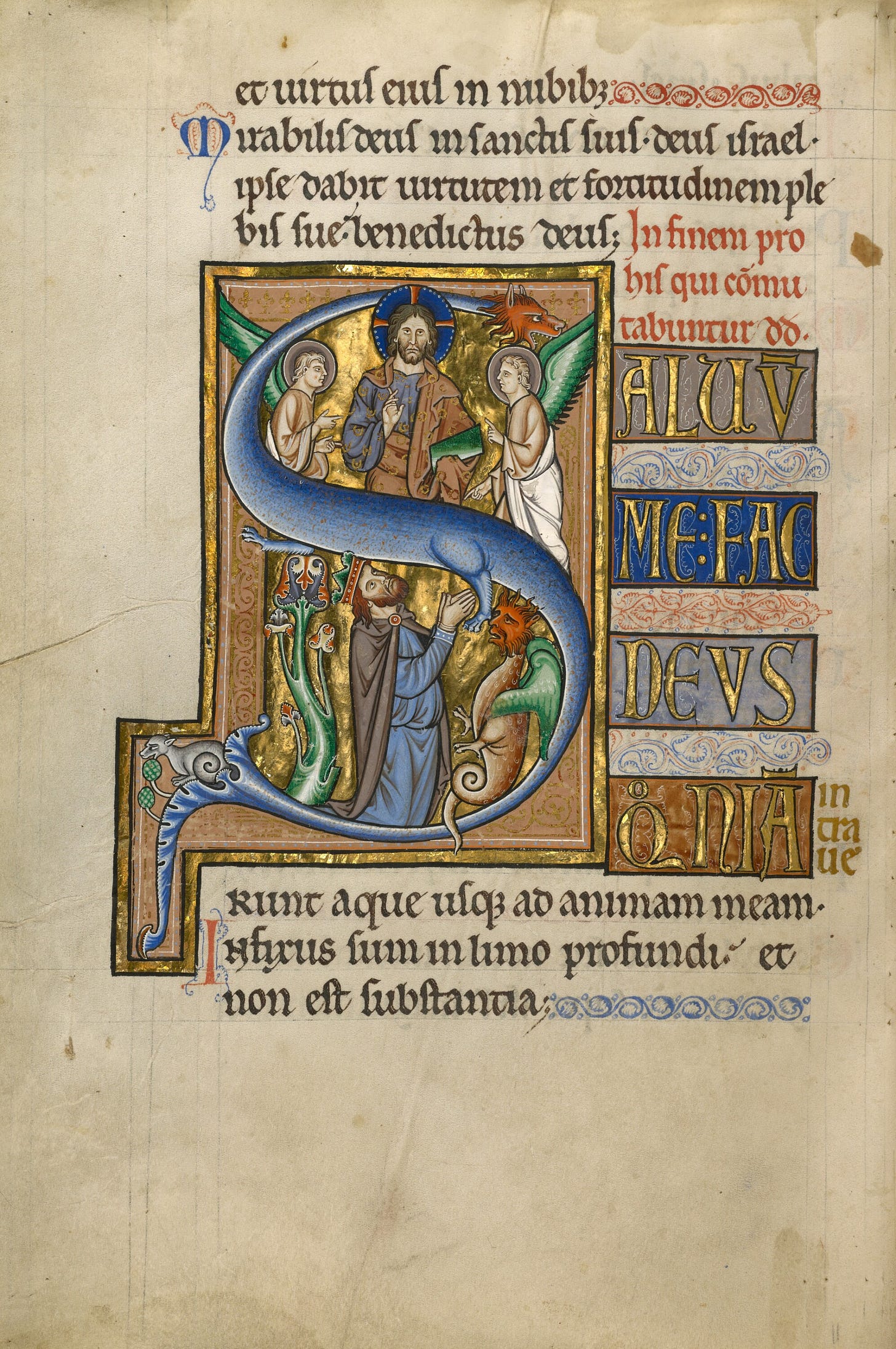Life surprised me again today, again via a second life-expanding email from Dana Gioia. The first showed up in my email box a year ago last March when Gioia contacted me out of the blue to tell me that he had read something(s) I’d written for Dappled Things Deep Down Things blog, and he wondered if I would like to write a review of a show at the Getty of ancient manuscripts. After some negotiations with the benefactor who had asked Gioia to find a writer, I was paid expenses for a really enjoyable trip for myself and a traveling companion between San José and LA, plus payment for the article. (You can read the article here: Getty Museum's Christian Manuscripts Exhibit Sees Antisemitism Where There Is None.)

When I introduced myself to Dana at the Catholic Imagination Conference in Dallas in late September, which he founded, I was delighted when he told me that every time he thinks of my Getty article, he gets a big smile on his face—I surmise because the article rather cheekily skewered unfounded claims the Getty curators were making about the illuminations’ supposed antisemitism and misogyny.
Continue reading below.
The second email I want to tell you about came because, in April this year, I had submitted a poem to a Kierkegaard Poetry Competition that was being judged by Dana Gioia and Mary Beth Mangano. After a long wait, I saw the five top winners announced, and I wasn’t one of them. Then a few weeks later a surprise email from Gioia carried the encouraging news that the poem I submitted, “Kierkegaard's Tremendous Paradoxes,” would be anthologized in a collection about to be published by Wiseblood Books.
The reason this is so encouraging is that a few years ago I began to think maybe I had some poetic chops because I won some recognition in a few poetry contests put on by Catholic Literary Arts: ("Mater Dolorosa in Via Crucis" won First Place. "The Love Song of Our Lady of O" and "The Baptizer's Baptism" won Honorable Mention.) Then I started to doubt when the few poems I wrote and submitted since then were completely ignored.
CLA, founded by the excellent “cop poet,” Sarah Cortez, offers wannabe and already practicing writers of any faith many opportunities to hone their writing, and to build connections with others with the same inclinations. Their contests continually give me nudges to start writing poetry with specifically Catholic subjects, in other words CLA gives me the motivation to write about what matters to me most in the whole world. Thank you, Sarah Cortez, and all who work with you.
I liked the poem I entered in the Kierkegaard poetry competition, but . . .. Even though I’d thought about the Kierkegaard poem and researched it for months, as per usual I wrote it at the last minute. I loved the beginning, but I felt the poem lost power towards the end. I ran out of time. I wished I could revise it as soon as I submitted it.
Amazingly, Dana expressed the same evaluation as I had about the poem. Also amazing was the remarkable opportunity he gave me: the chance to revise the poem before it was published. He writes,
"I loved the opening of the poem, but I felt it lost focus on the second page. I wanted to give you a chance to revise it for the anthology. I'm sure you'll see where it suddenly loses steam. You might revise it mostly by cutting. I leave it up to you. If you don't want to revise it, we will print it as is. But I feel the poem has potential you haven't realized yet.
“Send the new version to us both. We will slip it into the ms."
I agree with his judgment and his subtle suggestions. Especially since what he wrote so exactly agrees with my own thoughts. :-)
From the announcement posted at Dappled Things: "All of the winning poems, as well as 34 others that were accepted for inclusion in the anthology, will be published in an anthology from Wiseblood Books, in collaboration with the MFA in Creative Writing at the University of Saint Thomas in Houston and sponsored by Music Northwest."
The first stanza:
Kierkegaard’s Tremendous Paradoxes
Sloucher crooked like a human question mark.
Flaneur of Copenhagen, Street-corner loafer.
Unscientific method-ist, proto-existentialist
Godseeker labeled philosopher by posterity. . . .
Update: On May 23, “Catholic Arts Today” online magazine published my renamed poem Kierkegaard’s Enormous Paradox. When I notified Dana Gioia (so he could include a note about the publication at CAT in the Kierkegaard anthology, he wrote me back, “The revised poem is excellent.”



